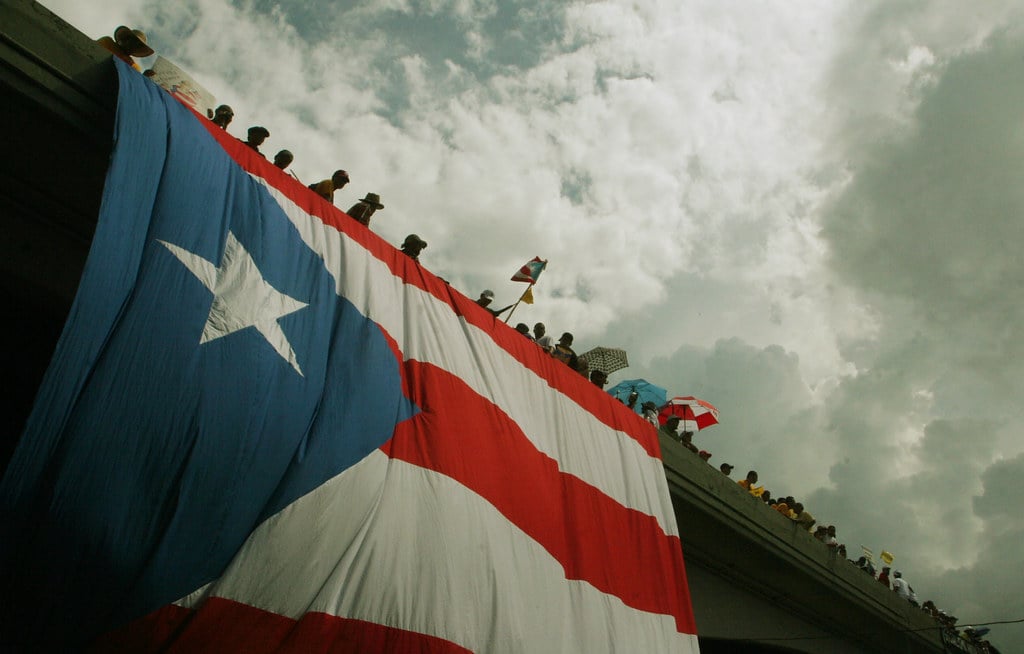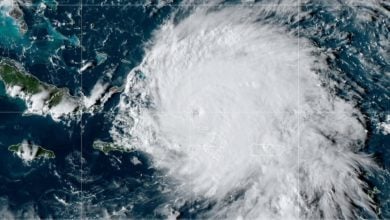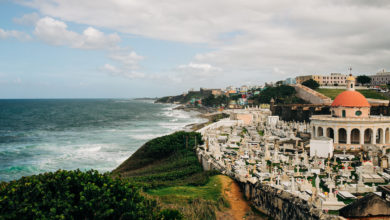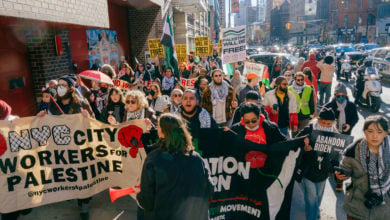Tito Kayak is a leader of the Puerto Rican environmental group “Amigos del MAR,” or “Friends of the Sea.” He is also active in the Puerto Rican national liberation movement. He was interviewed by Socialism and Liberation magazine’s Monica Ruíz in early September while on trial for attempting to lower the UN flag and raise the Puerto Rican flag on June 15, 2005, outside the United Nations, where the colonial status of Puerto Rico was being discussed. After this interview and in two subsequent hearings, Tito won his freedom. He is well known for raising the Vieques and Puerto Rican flags on top of the Statue of Liberty in 2001 to protest the U.S. Navy’s presence in Vieques. Tito served jail time for this heroic action.

Could you introduce yourself and give some background about your organization?
I am known as Tito Kayak, but my name is Alberto de Jesús Mercado. The name of my organization is “Amigos del MAR,” or Friends of the Sea.
This year in November, it will be ten years since we established and registered ourselves with the government as an environmentalist group. We developed a different concept of activist work, of working with the people—giving talks, recycling, but also doing daring actions. “MAR” in Spanish stands for the Revolutionary Environmental Movement, because we are revolutionaries. Revolution is change. We are not pioneers in the environmental struggle, but we work a different way. Much of what MAR does is action-oriented.
Five years ago in New York City, we took to the Statue of Liberty, throwing literature from a window and raised the struggle of Vieques on the symbol of the United States. We had a positive effect. Almost without realizing it, we took the struggle of Vieques to places where it previously was not known.
At the United Nations, we took advantage of the fact that the Decolonization Committee of the UN had convened. We intended to lower the UN flag and raise the Puerto Rican flag. We gave more focus and urgency to what was being said inside. Our act helped give attention to the continuing struggle in Vieques. Although the Navy has left, the cleanup of Vieques is being carried out in an irresponsible manner.
What is the U.S. government doing in Vieques?
A federal superfund has been created for the island of Vieques. There are some funds specifically for the clearing of Vieques. The problem is that they conduct this cleanup without the proper monitoring and procedures. Every time they find a bomb, they plant several other smaller bombs around it and detonate them in order to detonate the larger one. This just creates a bigger bomb, which pollutes unnecessarily and spreads harmful particles and contaminants on the ground. There is a way to remove these old bombs without blowing them up. If the bomb is in a coral reef, for example, they blow up the reef. So this is what we wanted to expose and to stop.
We wanted to bring this to the attention of the Environmental Protection Agency and other agencies, so some action could be taken.
At the UN, I was arrested before we could carry out the action we had planned. We hope other young people will carry out similar acts in the future and that they will succeed. In spite of not having succeeded this time, we were able to say something. Even the president of the UN had to address the issue, so in that way I guess it was effective.
In terms of the struggle in Vieques and in Puerto Rico in general, what is the role of your organization?
The first action of Amigos del MAR was in Vieques. It didn’t have to do with the Navy presence then. But we made a promise in 1995 that we would join the struggle there. We ratified this in 1998 while we were working on another project against NASA.
In 1999, Amigos del MAR initiated the first civil disobedience encampment. Without realizing it, this became the key to success in getting the Navy out. The first encampment was named Mount David after David Sanes, who was killed by a U.S. bomb during Navy military exercises. Many people joined in—politicians, the movement, university students, etc.

So this was a tremendous victory …
Well, I think so. But it is not over yet. We have to bring strength and support to the Vieques political prisoners. We have a compañero from Amigos del MAR, Jose Perez, who we call Hammer Fish, to whom I dedicated the action at the UN, as well as Jose Velez, and other political prisoners like Oscar Lopez, Carlos Alberto Torres, Haydee Beltran, who are in prison for the struggle for the liberation of Puerto Rico and for the struggle in Vieques. With our actions against the Navy at the Statue of Liberty, and with these compañeros, we have shown that we are the David fighting Goliath.
What message do you have for anti-war activists here?
My message is to have confidence, and to have faith. I can’t say I am the most Christian person out there, but when one is on the side of good, one must believe that they are not alone. For those who read this, you must have the mentality that what you do is for your people, for the planet and for humanity. You are not alone, because the strength of the universe is with you. It’s very important to have a clear focus, to know what exactly you are fighting for, because there are things that threaten to separate us. We must have integrity and not permit this to happen. That which unites us is stronger than that which could separate us.
How do you see the future of Puerto Rico?
We will win the independence of Puerto Rico. I believe that our nation and every nation has a right to independence. We as Puerto Ricans understand that we have to fight for it, that it will be a hard fight, and that they will try to have us believe we cannot succeed without the “great nation” of the United States. But with unity, we will succeed.
In terms of your trial, what is happening?
My lawyer—the same one I had with the Statue of Liberty—thought that I would plead guilty in exchange for five days of community service. It appears he doesn’t know me that well. When I rejected that proposal, the state was unprepared. The charges brought against me included a felony and assault of an officer, which were dropped due to lack of evidence. But the trespassing charge still stands. I could spend three months in jail. But I will never declare myself guilty. Much more time has been done by our political prisoners, so I can certainly do three months.
Tito Kayak arrested in San Juan, Puerto Rico in May 2001 protesting the U.S. Navy presence in Vieques.
Dozens of crosses commemorate cancer deaths caused by U.S. bombing practices in Vieques, 2001.
Photo: Andres Lopez





